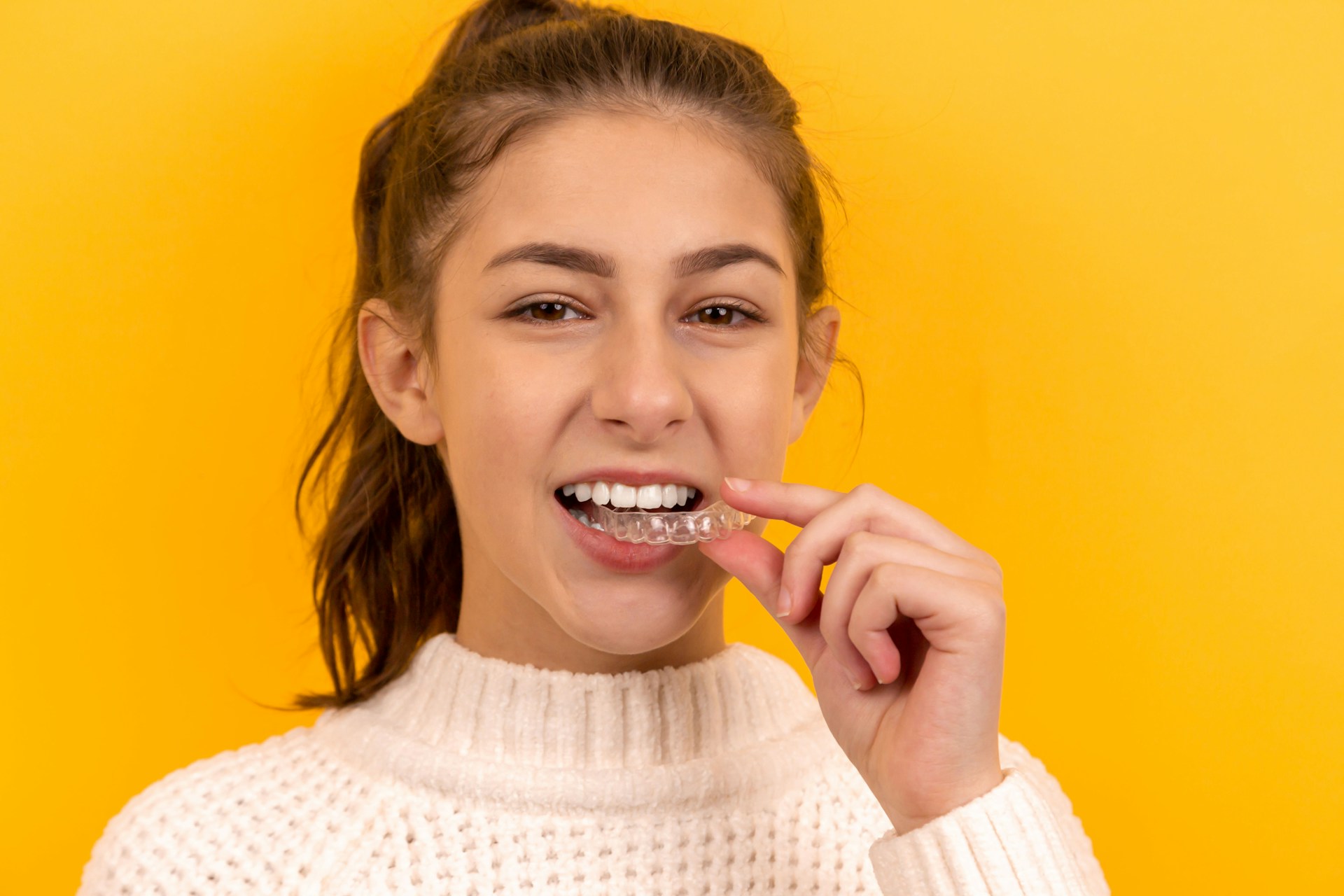Welcome to our guide on “How to Clean Your Retainer”! If you’ve recently been fitted with a retainer or have been wearing one for some time, you’re probably aware of the importance of keeping it clean. Whether you have a traditional Hawley retainer or a modern clear aligner retainer like Invisalign, maintaining proper hygiene is essential for preserving your oral health and the effectiveness of your orthodontic treatment.
In this article, we’ll explore the best practices for cleaning retainers, providing you with valuable insights and tips to ensure your retainer stays fresh, hygienic, and odor-free. From understanding why cleaning retainers are essential to learning the best techniques for keeping them pristine, we’ve got you covered. So, let’s dive in and discover the secrets to maintaining a clean and healthy retainer!
Understanding Retainers
Before we dive into the cleaning process, let’s take a moment to understand what retainers are and why they’re necessary. A retainer is a custom-made orthodontic appliance designed to maintain the position of your teeth after orthodontic treatment, such as braces or Invisalign.
Once your teeth have been shifted into their desired alignment, a retainer helps prevent them from reverting to their original position by holding them in place. Retainers can be made from various materials, including plastic and metal, and come in different types, such as removable or fixed.
Wearing a retainer is an essential part of your orthodontic journey, as it ensures that your teeth remain straight and aligned over time. However, to reap the full benefits of your retainer, it’s crucial to keep it clean and free from bacteria and plaque buildup. Now that we have a basic understanding of retainers, let’s explore the importance of proper cleaning and maintenance.
Why Clean Retainers Are Essential
Maintaining clean retainers is essential for several reasons. Firstly, a clean retainer helps prevent the buildup of plaque, bacteria, and food particles, which can lead to oral health issues such as cavities, gum disease, and bad breath. Additionally, keeping your retainer clean ensures that it remains effective in holding your teeth in their proper position.
When retainers are not cleaned regularly, they can become a breeding ground for harmful bacteria, which can pose risks to both your oral health and overall well-being. Bacteria thrive in warm, moist environments, making the mouth and orthodontic appliances like retainers an ideal habitat. Without proper cleaning, these bacteria can multiply rapidly and contribute to oral health problems.
Furthermore, dirty retainers can develop an unpleasant odor, affecting not only your oral hygiene but also your confidence and social interactions. Regular cleaning and maintenance of your retainer are crucial for ensuring that it remains odor-free and comfortable to wear.
Overall, clean retainers play a vital role in maintaining good oral health and maximizing the effectiveness of your orthodontic treatment. By incorporating proper cleaning habits into your daily routine, you can enjoy the benefits of a healthy and beautiful smile for years to come.
How to Clean Retainers: Best Practices
Cleaning your retainers is a straightforward process that can be easily incorporated into your daily oral hygiene routine. Here are some best practices to ensure that your retainers stay clean and free from bacteria:
Rinse After Removal
After removing your retainers from your mouth, rinse them thoroughly under lukewarm water to remove any saliva or food particles. Avoid using hot water, as it can warp the plastic material of the retainers.
Brush Gently
Use a soft-bristled toothbrush and a mild, non-abrasive soap or denture cleaner to gently scrub your retainers. Avoid using toothpaste, as it can be too abrasive and may scratch the surface of the retainers. Be sure to clean all surfaces of the retainers, including the inside and outside, as well as any grooves or crevices where bacteria can accumulate.
Soak Daily
To effectively remove stubborn plaque and bacteria, soak your retainers daily in a denture cleaning solution or a mixture of equal parts water and white vinegar. Allow the retainers to soak for at least 15-20 minutes before rinsing them thoroughly with water.
Avoid Harsh Chemicals
When cleaning your retainers, avoid using harsh chemicals such as bleach, alcohol, or hydrogen peroxide, as these can damage the plastic material and compromise the integrity of the retainers. Stick to gentle cleaning solutions that are specifically designed for orthodontic appliances.
Handle with Care
Be gentle when handling your retainers to avoid bending or damaging them. Avoid dropping them or placing them in hot water, as this can cause them to warp or become misshapen.
Clean Your Case
Don’t forget to clean your retainer case regularly to prevent bacteria from accumulating and transferring to your retainers. Wash the case with soap and water, and allow it to air dry completely before storing your retainers inside.
By following these best practices for cleaning your retainers, you can ensure that they remain free from bacteria and plaque buildup, prolonging their lifespan and maximizing their effectiveness in maintaining your newly aligned smile.
Conclusion
Maintaining clean retainers is essential for preserving your oral health and ensuring the success of your orthodontic treatment. By following the best practices outlined in this guide, you can effectively remove bacteria and plaque from your retainers, keeping them fresh and odor-free.
Remember to rinse your retainers after removal, brush them gently with a soft-bristled toothbrush and mild soap, and soak them daily in a denture cleaning solution. Avoid using harsh chemicals and handle your retainers with care to prevent damage.
By incorporating these cleaning practices into your daily routine, you can prolong the lifespan of your retainers and enjoy a healthy, beautiful smile for years to come. If you have any questions or concerns about caring for your retainers, don’t hesitate to reach out to Scaffidi Orthodontics for personalized guidance and support.
